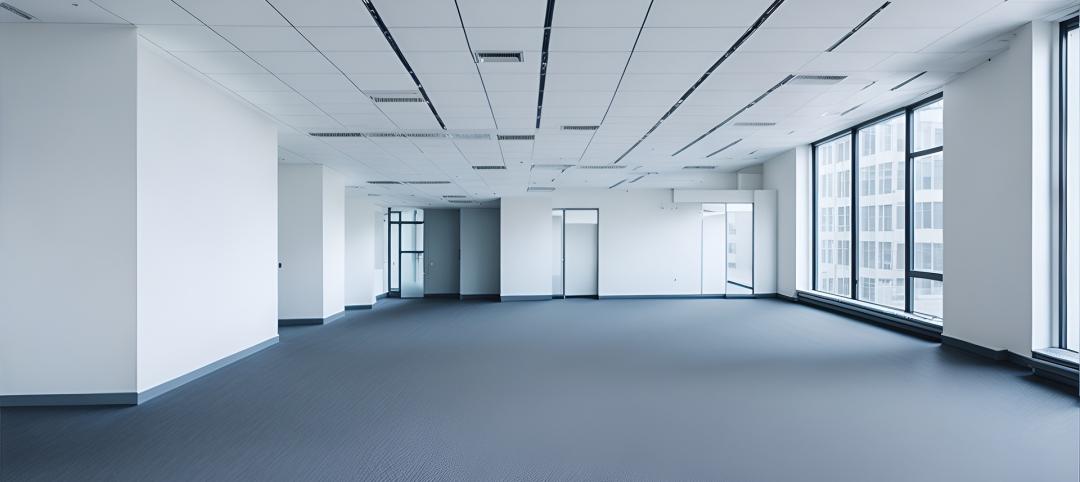The U.S. construction industry added 48,000 jobs in December, including 22,800 jobs in nonresidential construction, according to the Bureau of Labor Statistics (BLS) preliminary estimate released Jan. 9.
November's estimate was unchanged in this release, remaining at 20,000 net new construction jobs, but nonresidential construction's November jobs figure was upwardly revised to 7,100 jobs.
"The U.S. economy added an average of 289,000 jobs per month during the final three months of 2014, indicating that momentum is surging as we transition into 2015," said Associated Builders and Contractors Chief Economist Anirban Basu. "This represents good news for the construction industry in 2015 and perhaps beyond, particularly with respect to office construction, retail construction, and other segments that benefit directly from accelerating job growth and decreasing unemployment. Overall, the economy has built steady momentum since the end of last winter adding an average of 246,000 jobs per month in 2014, an increase of more than 50,000 jobs added per month compared to 2013."
According to the BLS household survey, the national unemployment rate fell to 5.6% in December. This represents the lowest level of unemployment since June 2008. The declining unemployment rate is most likely a result of a labor force that shrank by 273,000 persons in December, after expanding in the previous two months. The labor force participation rate fell by 0.02% and now sits at 62.7%.
"One of the most interesting aspects of the report is that construction unemployment ended the year at 8.3 percent on a non-seasonally adjusted basis," said Basu. "While construction firm executives have been worried for years about the specter of construction skills shortages, the BLS data indicate there are plenty of people looking for jobs in construction. It is likely that many of these prospective workers lack the skills necessary to fill the openings construction firms are seeking to fill or live in areas where construction employment growth is much slower.
"Normally, high construction unemployment would imply slow rates of wage and compensation increases; however, ABC believes this is not the case," added Basu. "Because of the presence of skills mismatches, wage gains are likely to be sizeable in 2015 even in the presence of lofty rates of construction unemployment."
Construction employment for the month and the past year breaks down as follows:
• Nonresidential building construction employment expanded by 10,000 for the month and is up by 23,400 jobs, or 3.4 percent, since December 2013.
• Residential building construction employment expanded by 800 jobs in December and is up by 44,500 jobs, or 7 percent, on an annual basis.
• Nonresidential specialty trade contractors added 12,800 jobs for the month and employment in that category is up by 76,900 jobs, or 3.7 percent, from the same time one year ago.
• Residential specialty trade contractors gained 12,700 jobs in December and have added 87,600 jobs, or 5.6 percent, since December 2013.
• The heavy and civil engineering construction segment gained 11,600 jobs in December and job totals are up by 57,900, or 6.6 percent, on a year-over-year basis.
To view the previous employment report, click here.
Related Stories
Adaptive Reuse | Sep 12, 2024
White paper on office-to-residential conversions released by IAPMO
IAPMO has published a new white paper titled “Adaptive Reuse: Converting Offices to Multi-Residential Family,” a comprehensive analysis of addressing housing shortages through the conversion of office spaces into residential units.
Mixed-Use | Sep 10, 2024
Centennial Yards, a $5 billion mixed-use development in downtown Atlanta, tops out its first residential tower
Centennial Yards Company has topped out The Mitchell, the first residential tower of Centennial Yards, a $5 billion mixed-use development in downtown Atlanta. Construction of the apartment building is expected to be complete by the middle of next year, with first move-ins slated for summer 2025.
Healthcare Facilities | Sep 9, 2024
Exploring the cutting edge of neuroscience facility design
BWBR Communications Specialist Amanda Fisher shares the unique considerations and challenges of designing neuroscience facilities.
Office Buildings | Sep 6, 2024
Fact sheet outlines benefits, challenges of thermal energy storage for commercial buildings
A U.S. Dept. of Energy document discusses the benefits and challenges of thermal energy storage for commercial buildings. The document explains how the various types of thermal energy storage technologies work, where their installation is most beneficial, and some practical considerations around installations.
Office Buildings | Sep 5, 2024
Office space downsizing trend appears to be past peak
The office downsizing trend may be past its peak, according to a CBRE survey of 225 companies with offices in the U.S., Canada, and Latin America. Just 37% of companies plan to shrink their office space this year compared to 57% last year, the survey found.
University Buildings | Sep 4, 2024
UC San Diego’s new Multidisciplinary Life Sciences Building will support research and teaching in both health and biological sciences
The University of California San Diego has approved plans for a new Multidisciplinary Life Sciences Building, with construction starting this fall. The 200,000-sf, six-level facility will be the first building on the UC San Diego campus to bridge health science research with biological science research and teaching.
Codes and Standards | Sep 3, 2024
Atlanta aims to crack down on blighted properties with new tax
A new Atlanta law is intended to crack down on absentee landlords including commercial property owners and clean up neglected properties. The “Blight Tax” allows city officials to put levies on blighted property owners up to 25 times higher than current millage rates.
Resiliency | Sep 3, 2024
Phius introduces retrofit standard for more resilient buildings
Phius recently released, REVIVE 2024, a retrofit standard for more resilient buildings. The standard focuses on resilience against grid outages by ensuring structures remain habitable for at least a week during extreme weather events.
Construction Costs | Sep 2, 2024
Construction material decreases level out, but some increases are expected to continue for the balance Q3 2024
The Q3 2024 Quarterly Construction Insights Report from Gordian examines the numerous variables that influence material pricing, including geography, global events and commodity volatility. Gordian and subject matter experts examine fluctuations in costs, their likely causes, and offer predictions about where pricing is likely to go from here. Here is a sampling of the report’s contents.
Adaptive Reuse | Aug 29, 2024
More than 1.2 billion sf of office space have strong potential for residential conversion
More than 1.2 billion sf of U.S. office space—14.8% of the nation’s total—have strong potential for conversion to residential use, according to real estate software and services firm Yardi. Yardi’s new Conversion Feasibility Index scores office buildings on their suitability for multifamily conversion.

















